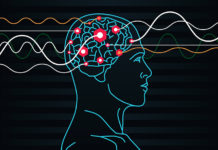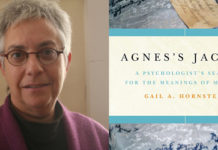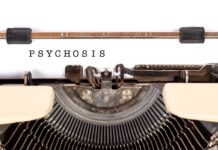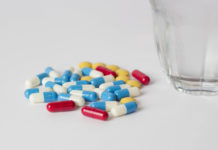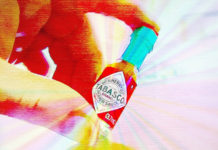Neurofeedback is Not For Everyone: The Dangers of Neurology
One thing I noticed, from the moment that I stepped out of my psychiatrist’s office, was how strangely blank and yet clear my mind was. I felt surprisingly calm and relaxed, and I decided to go back for another treatment the next week. What I couldn’t have known then was that after that next “treatment,” life would be completely destroyed for me.
Study Finds Hearing Voices Groups Improve Social and Emotional Wellbeing
Hearing Voices Network self-help groups are an important resource for coping with voice hearing, study finds.
Voices in our Heads: The Prefrontal Cortex as Parasite
As I considered the voice I heard talking to me in my own head, it occurred to me that what was happening was, more or less, a later development of the brain talking to a more basic and earlier level of consciousness, one which was not verbal itself and was, in fact, the actual seat and locus of my real awareness.
Fighting for the Meaning of Madness: An Interview with Dr. John Read
Akansha Vaswani interviews Dr. John Read about the influences on his work and his research on madness, psychosis, and the mental health industry.
First-Person Accounts of Madness and Global Mental Health: An Interview with Dr. Gail Hornstein
Dr. Gail Hornstein, author of Agnes’s Jacket: A Psychologist’s Search for the Meanings of Madness, discusses the importance of personal narratives and service-user activism in the context of the global mental health movement.
The Voices My Daughter Hears
The voices were extraordinary; in a way, they were like ghosts. I could not see them, but only divine them by the turmoil they stirred up in Annie. They were not polite house ghosts who knew when to leave; they were ne’er-do-wells she could not get rid of. They were tormentors and torturers, testing the limits of her sanity, blackmailing her into submission.
New Data on the Adverse Effects of Meditation and Mindfulness
Study reports on the less-examined findings of difficult and painful meditation-related experiences.
The Hearing Voices Movement: In Response to a Father – ‘My Daughter, the Schizophrenic’
There was a heart-breaking and disturbing story in yesterday’s Guardian newspaper entitled, My Daughter, the Schizophrenic’, which featured edited extracts from a book written by the father of a child called Jani. He describes how Jani is admitted into a psychiatric hospital when she is 5, diagnosed with schizophrenia when she is 6 and by the time she is 7, she has been put on a potent cocktail of psychotropic medications.
‘Mad’ Psychologist Speaks Out
Yet again I find myself in the painful, ridiculous and uncomfortable position of having to try to do my best to repair the extensive damage which is being done to vulnerable survivors of child abuse by the system. Yet again I am powerless to do much about it.
Gradual Tapering is Most Successful for Withdrawal from Antipsychotics
Mixed-Methods study explores the experiences of antipsychotic discontinuation among service users.
De-Othering “Schizophrenia” by Placing it in Socio-Historical Context
Understanding schizophrenia as a non-enigmatic, understandable human experience goes against a history of institutional “othering” that has sustained psychiatric legitimacy and further marginalized service-users.
Helping People to Constructively Engage with Voices
When voices are engaged with creativity and compassion, the result can be a positive change in the relationship with voices, leading to much greater peace of mind. But how can people learn how to facilitate this? A new video series by Charlie Heriot-Maitland, Rufus May and Elisabeth Svanholmer offers some practical ideas.
On Voice Hearing Simulations: Why They Should Be (Mostly) Banned
Voice hearing simulation exercises are designed to make participants feel frightened, overwhelmed, and unable to function. They don’t do anything to teach how people who hear voices work through that, the many effective strategies they use, or any of the benefits that some come to find in this way of being in the world.
Hallucinations Reported as Side Effect of ADHD Medication
Hallucinations and other psychotic symptoms have been reported after methylphenidate (Ritalin) treatment for ADHD.
Confronting the Addiction Voice on the Road to Recovery
Part 1 of this series examined how the disease model of addiction intersects with the genetically based “mental illness” theory and practice of Biological Psychiatry. Part 2 analyzed the serious limitations and sometimes harmful effects of the domination of addiction treatment by the Twelve Step (disease model), and how Biological Psychiatry has both seized upon and expanded the culture of addiction in this country. What follows will be a presentation of some alternative methods for overcoming addiction problems.
Distinguishing Dissociative Disorders from Psychotic Disorders: Compounding Alienation
If a person recognizes the “alien” parts of themselves as being parts of themselves, they are likely to be seen as having PTSD or a dissociative disorder. If they see the “alien” parts of themselves as being literally aliens, or demons, they will likely be diagnosed as psychotic. But these experiences are really on a spectrum.
Study Explores Māori Community’s Multifaceted Understanding of “Psychosis”
A new study explores how “psychosis” and “schizophrenia” are viewed within the Māori community in New Zealand.
The Hearing Voices Movement: Beyond Critiquing the Status Quo
We have just celebrated the anniversary of the rapidly expanding global Hearing Voices Movement which was founded more than twenty-five years ago following the ground-breaking research of Professor Marius Romme and Dr Sandra Escher. Romme and Escher have advocated for a radical shift in the way we understand the phenomenon of Hearing Voices; in contrast to traditional, biomedical psychiatry which views voices as an aberrant by-product of genetic, brain and cognitive faults, their research has firmly established that voices make sense when taking into account the traumatic circumstances that frequently provoke them.
Better Outcomes Off Medication for Those Recovered from First-Episode Schizophrenia
A new study has found that of 10 people who were fully recovered from their first episode of schizophrenia (FES), those not taking antipsychotics did better in terms of cognitive, social, and role functioning—and reached full recovery more quickly.
United Nations Report Calls for Revolution in Mental Health Care
In a new report, the United Nations Special Rapporteur on the right to health, Dr. Dainius Pūras, calls for a move away from the biomedical model and “excessive use of psychotropic medicines.”
The Hearing Voices Movement: Has it Really Been 25 years?
In November 2012, Cardiff, Wales, more than two hundred and fifty people who hear voices, see visions and have other unusual and extreme experiences (referred to as “hearing voices” in the rest of this post), family members, friends, activists and allied experts by profession came together from around the world. The purpose of the three-day meeting was to celebrate the twenty fifth anniversary of the formation of hearing voices movement, to consider the lessons learnt so far and to envisage what we should be doing over the next 25 years. The excellent film, "Voices Matter", that you can now view on this site is a record of the event and I strongly recommend that you take a look.
The Day I Became Schizophrenic
Schizophrenia, to me, is nothing more than a word. All it really means is that you experience psychosis on a regular enough basis that it’s a factor in your life. And that you actually do, as the word “schizophrenia” indicates, have a mind that you share with some sort of outside presence.
Process Oriented Approaches to Altered and Extreme States of Consciousness
When John Herold went to see a Process Work counselor, they talked about how his experience of extreme states had been disruptive in his life, but how these states also had value. The counselor compared John's experience with drinking an entire bottle of Tabasco sauce all at once. Why not instead, the counselor suggested, "try being just a little psychotic all the time?"
Study Examines Women’s Experiences of Hearing Voices
An international group of researchers from multiple disciplines has published a historical, qualitative, and quantitative investigation into voice-hearing in women. The interdisciplinary project, freely available from Frontiers in Psychiatry, explores how sexism, exploitation, and oppression bear on women’s’ experiences of hearing voices.
Not So Rare But Rarely Diagnosed: From Demonic Possession to Anti-NMDA Receptor Encephalitis
Throughout the ages, convulsions, contortions of the body and face, including the tongue, super-human strength, catatonic periods, long periods of wakefulness or sleep, insensitivity to pain, speaking in tongues, and a predilection for self-injurious behaviours have all been offered as physical evidence of possession. The modern day interpretation, however, comes with a plot twist befitting a media spectacle. There is growing consensus in the medical community that many prior accounts of “demonic possession” may have represented original accounts of what is now broadly known as autoimmune encephalitis.

